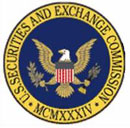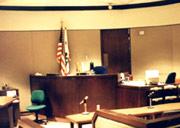|
|
|
Rules for plaintiffs with Vioxx claims
Breaking Legal News |
2007/11/09 11:52
|
Former users of withdrawn painkiller Vioxx will be eligible for a piece of manufacturer Merck & Co.'s $4.85 billion nationwide settlement if they meet strict criteria meant to weed out people with bogus claims. They must: -- Have had a claim filed by Thursday, the day before the deal was announced. -- Already have medical documentation that they suffered a heart attack or an ischemic stroke; people who had mini-strokes or hemorrhagic strokes are not eligible. -- Have proof they received at least 30 Vioxx pills. -- Have received Vioxx pills recently enough to indicate they likely took the painkiller within two weeks of their injury. -- Be legal U.S. residents alleging their injury occurred in the United States. -- Promptly register their claims after being contacted by their current attorney. |
|
|
|
|
|
|
SEC investigating Merrill subprime portfolio
Securities |
2007/11/08 08:40
|
Embattled investment bank Merrill Lynch & Co. said Wednesday that federal regulators were investigating matters related to its holdings of high-risk mortgage debt. The Securities and Exchange Commission began the investigation Oct. 24, the world's largest brokerage firm said in a regulatory filing. It did not provide details but said it was cooperating with the inquiry.
Recent news reports have said the SEC inquiry included deals that Merrill struck with hedge funds to allegedly cloak its vulnerability to so-called sub-prime mortgage debt. The SEC has not publicly commented.
News late last month of a $2.24-billion third-quarter loss -- the biggest in Merrill's 93-year history -- tied to the summer's credit crisis shook the firm and swept out Chief Executive Stan O'Neal last week.
New York-based Merrill also said a class-action lawsuit by shareholders and a shareholder-derivative suit were filed recently against the company and several executives claiming they failed to disclose pertinent information about collateralized debt obligations, or CDOs, complex instruments that combine slices of different kinds of risk.
It was Merrill's bet on CDOs, and sub-prime mortgages underpinning many of them, that proved to be O'Neal's downfall. |
|
|
|
|
|
|
Tully law firm adds office in D.C.
Law Firm News |
2007/11/08 08:36
|

An Albany law firm will be adding offices in Washington, D.C. early next year, buoyed by a recent contract with the largest union of federal employees in the country.
Tully Rinckey & Associates PLLC plans to open a Washington office with three attorneys in the spring, while later adding a branch office in Utica, N.Y., firm partner Greg Rinckey said today. Before those sites open, the firm is scheduled to move its main office to 441 New Karner Road in Albany, a quarter-mile from its current site. Rinckey said the firm hopes the Washington office will be "a springboard" for landing future contracts with federal agencies. Recently, the firm agreed to take on a backlog of 3,000 cases for the American Federation of Government Employees, Rinckey said. The union represents about 600,000 workers holding jobs with the federal government and the District of Columbia. Steven Herrick, the firm's senior counsel, will move to Washington to head that office. Associate attorney Tracy Dam-Chieco will run the Utica office. |
|
|
|
|
|
|
Supreme Court Takes Up Arbitration Case
Breaking Legal News |
2007/11/08 08:22
|
| A seemingly divided Supreme Court on Wednesday debated whether the judiciary should play a role in arbitration cases, the process used by businesses to sort out tens of thousands of disputes as an alternative to going to court. In an environmental cleanup case, a lawyer for toy manufacturer Mattel Inc. told the justices that the role of the courts is a limited one and that an arbitrator's decision in the company's favor should stand. An attorney for a property owner where Mattel once operated a factory in Beaverton, Ore., argued that the courts should step in and correct mistaken decisions by arbitrators. Arbitration is often regarded by the business community as a cost-saving, timesaving substitute for lawsuits. But the risk is that the losing side cannot seek relief in the courts except in limited circumstances. In the fight between Hall Street Associates L.L.C. v. Mattel, the two sides agreed in advance that a federal court could review an arbitrator's decision for possible errors of law. A federal judge overturned the arbitrator's decision, making the property owner the winner in the Mattel case. Chief Justice John Roberts suggested expanded judicial review is appropriate in this instance, pointing to the fact that the two sides negotiated a contract with court review as one of its provisions. Justices David Souter, Ruth Bader Ginsburg and Antonin Scalia suggested Mattel might be seeking more latitude than the law allows for parties to negotiate expanded judicial review in arbitration cases. The American Arbitration Association says a cornerstone principle of federal law is that arbitrators' awards are final and binding. If parties to a dispute are allowed to engage in expanded judicial review, arbitration will become a prelude to lawsuits instead of a substitute, the association said in court papers. Many industries have an interest in the case, including the wireless communications industry which has filed papers in support of an expanded role for the courts. The wireless industry says that in the absence of court review, parties may decide they are unwilling to "bet the company" on arbitration. The result would be a decline in the number of disputes sent to arbitration and an added workload for already-overburdened courts. In the case before the justices, Hall Street Associates wants Mattel to pay for cleanup at a contaminated factory site that Mattel leased from Hall Street. The toy company and the property owner agreed to submit the case to arbitration, signing an agreement allowing either side to seek court review of the decision. The property that Mattel leased from Hall Street Associates contains high levels of the industrial solvent TCE used to degrease metal parts. Mattel did not contaminate the grounds with the hazardous chemical and an arbitrator initially ruled the toy manufacturer did not have to pay for the cleanup. The case then began a six-year odyssey through the federal court system. A judge said the arbitrator's decision "defies logic." The arbitrator responded by reversing himself and awarding Hall Street $584,000. This prompted another trip to the courts and ultimately an order by the 9th U.S. Circuit Court of Appeals in San Francisco to reinstate the original arbitration award in favor of Mattel. |
|
|
|
|
|
|
Court Upholds Elvis Memorabilia Ruling
Court Watch |
2007/11/08 07:20
|
| A legal battle over an odd collection of Elvis Presley memorabilia — including a glass device reportedly used to irrigate the King's sinuses before the took the stage — could be nearing an end. The Delaware Supreme Court on Tuesday upheld a ruling granting California businessman Richard Long ownership of the collection of items once owned by Presley's personal physician, Dr. George Nichopolous. The collection includes a black doctor's bag used by Nichopolous containing prescription bottles bearing Presley's name, as well as jewelry, guns, and a laryngeal scope used to examine Presley's throat. According to the lawsuit, Nichopolous agreed last year to sell it for $1 million to Long and his business partners, Robert Gallagher and Betty Franklin of Nevada. Long put up the money, and Gallagher and Franklin, who claimed to have a "half interest" in the collection, agreed to assign all their rights to a company Long controlled. Long alleged in his lawsuit that Gallagher and Franklin refused to surrender access to the memorabilia and would not provide the paperwork needed to obtain insurance. A judge entered a default judgment against Gallagher and Franklin in July after they repeatedly failed to appear for court hearings and ignored court orders. The judgment held Gallagher and Franklin in contempt and gave Long authority to dissolve the partnership and sell the collection. The Supreme Court turned down Gallagher's appeal Tuesday. David Finger, an attorney for Long, said his client is determined to make Gallagher give up the collection. "If he does not turn it over, we will seek to have him incarcerated," Finger said. Michael Matuska, an attorney for Gallagher and Franklin, did not immediately return a telephone message Wednesday. |
|
|
|
|
|
|
Man pleads guilty to threatening Riverside DA
Court Watch |
2007/11/08 05:38
|
| A man who was part of a newspaper's advertising staff could face as much as three years in prison after pleading guilty to making a threat against county District Attorney Rod Pacheco. Chandler William Cardwell, 33, entered his plea Wednesday. In exchange, prosecutors agreed to drop another threat charge and a forgery charge, as well as a special allegation. Sentencing is scheduled for Dec. 10. Cardwell was arrested in September after authorities executed search warrants at The Press-Enterprise where he worked in the classified advertising department. Investigators said Cardwell placed an ad for a "Big Blowout, Going Out of Business" yard sale with proceeds to benefit the "Rod Pacheco memorial fund." It listed the district attorney's home address and phone number. The ad appeared to be a response to Pacheco's announcement that he was seeking an injunction to restrict members of a gang from gathering and to force them to adhere to a curfew. Cardwell's brother-in-law is a member of the gang, authorities said. Deputy Attorney General Michael Murphy said Cardwell's ties to the gang remain unclear, but "he clearly associates with them." Cardwell's attorney, Richard Carnero, refuted that claim, saying his client is not a gang member. The ad was not placed "in connection with any gang," he said. |
|
|
|
|
|
|
Russia asks UN to urge Georgia to stop violence
International |
2007/11/08 05:18
|
Russia called on the international community on Thursday to get Georgia's leadership to stop using violence against protesters and to respect human rights. Georgian President Mikhail Saakashvili declared a state of emergency on Wednesday and shut down independent broadcasters after police used tear gas, water cannons and beat hundreds of protesters to quash six days of anti-government protests. "We are convinced the world community, major human rights bodies ... the United Nations, the Council of Europe and the OSCE should urge official Tbilisi to stop violence and fully respect human rights and resolve its internal political issues constitutionally, without the use of force," Russian Foreign Ministry spokesman Mikhail Kamynin said on television.
Saakashvili, who faces his worst crisis since he came to power in a bloodless 2003 revolution, accused Russian special services of fanning unrest in his tiny nation and ordered the expulsion of three Russian diplomats from Tbilisi.
In earlier remarks, Moscow called Saakashvili's allegations a "farce" and "hysteria" but did not announce any countermeasures.
"We want to declare with all responsibility one more time that Russia is not an enemy of Georgia but a friend of Georgia and the Georgian nation," Kamynin said.
"The television footage ran around the world has evidently shown what democracy Georgia-style is -- it's a tough crackdown on a peaceful demonstration, closures of free media outlets and beatings of foreign journalists."
Kamynin said two Russian journalists had suffered in the police attack.
Saakashvili accused Moscow on Wednesday of "playing dirty geo-political escapades" by backing Georgia's separatists in its pro-Russian South Ossetia and Abkhazia provinces.
Kamynin said Russia would respect its international obligations to seek peaceful settlement to the issues in both provinces. "At the same time, we will fulfil our obligations to defend the Russian citizens living in Abkhazia and South Ossetia," he stressed.
Russia has peacekeepers in the two rebel regions. But it also gives moral and financial support to Abkhazia and South Ossetia and the majority of locals are Russian passport holders. |
|
|
|
|
|
|
Class action or a representative action is a form of lawsuit in which a large group of people collectively bring a claim to court and/or in which a class of defendants is being sued. This form of collective lawsuit originated in the United States and is still predominantly a U.S. phenomenon, at least the U.S. variant of it. In the United States federal courts, class actions are governed by Federal Rules of Civil Procedure Rule. Since 1938, many states have adopted rules similar to the FRCP. However, some states like California have civil procedure systems which deviate significantly from the federal rules; the California Codes provide for four separate types of class actions. As a result, there are two separate treatises devoted solely to the complex topic of California class actions. Some states, such as Virginia, do not provide for any class actions, while others, such as New York, limit the types of claims that may be brought as class actions. They can construct your law firm a brand new website and help you redesign your existing law firm site to secure your place in the internet. |
Law Firm Directory
|
|








